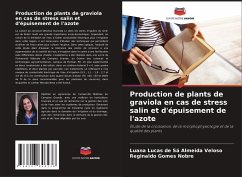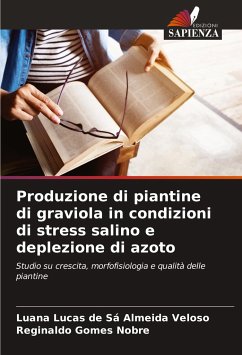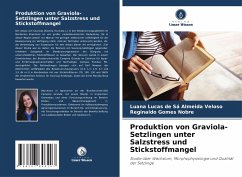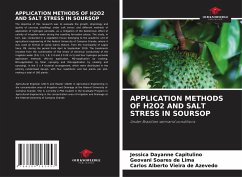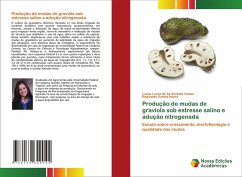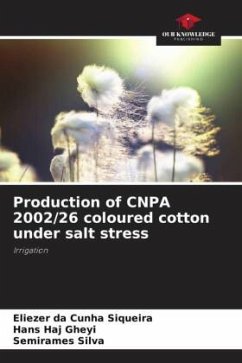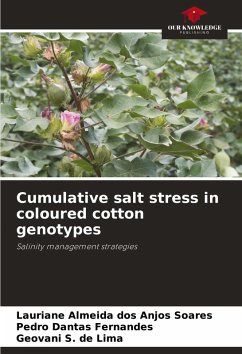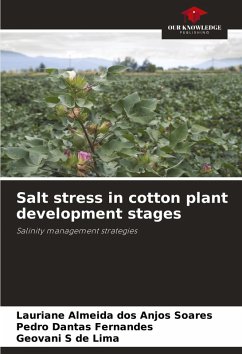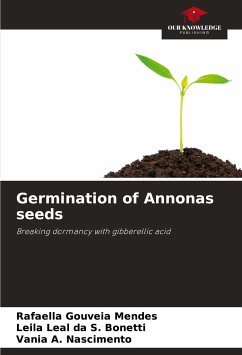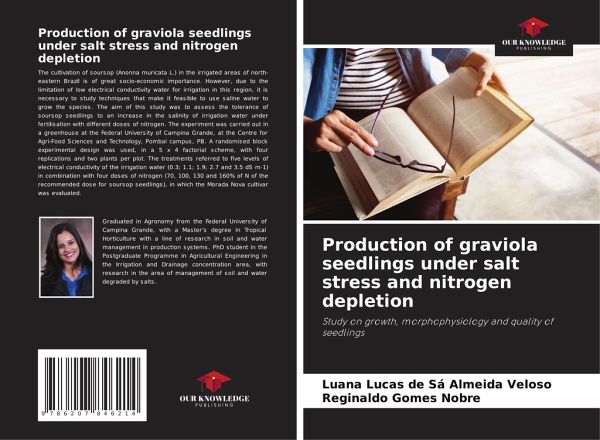
Production of graviola seedlings under salt stress and nitrogen depletion
Study on growth, morphophysiology and quality of seedlings
Versandkostenfrei!
Versandfertig in 6-10 Tagen
27,99 €
inkl. MwSt.

PAYBACK Punkte
14 °P sammeln!
The cultivation of soursop (Anonna muricata L.) in the irrigated areas of north-eastern Brazil is of great socio-economic importance. However, due to the limitation of low electrical conductivity water for irrigation in this region, it is necessary to study techniques that make it feasible to use saline water to grow the species. The aim of this study was to assess the tolerance of soursop seedlings to an increase in the salinity of irrigation water under fertilisation with different doses of nitrogen. The experiment was carried out in a greenhouse at the Federal University of Campina Grande, ...
The cultivation of soursop (Anonna muricata L.) in the irrigated areas of north-eastern Brazil is of great socio-economic importance. However, due to the limitation of low electrical conductivity water for irrigation in this region, it is necessary to study techniques that make it feasible to use saline water to grow the species. The aim of this study was to assess the tolerance of soursop seedlings to an increase in the salinity of irrigation water under fertilisation with different doses of nitrogen. The experiment was carried out in a greenhouse at the Federal University of Campina Grande, at the Centre for Agri-Food Sciences and Technology, Pombal campus, PB. A randomised block experimental design was used, in a 5 x 4 factorial scheme, with four replications and two plants per plot. The treatments referred to five levels of electrical conductivity of the irrigation water (0.3; 1.1; 1.9; 2.7 and 3.5 dS m-1) in combination with four doses of nitrogen (70, 100, 130 and 160% of Nof the recommended dose for soursop seedlings), in which the Morada Nova cultivar was evaluated.





